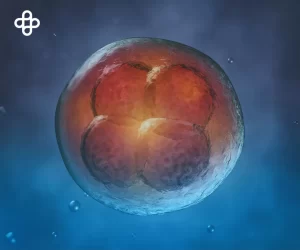Hypothyroidism is when the thyroid gland does not produce enough thyroid hormones. This deficiency can lead to a range of debilitating symptoms, such as fatigue, weight gain, depression, and memory problems. Traditionally, treatment involves the administration of synthetic thyroid hormones, but regenerative medicine offers new hope for patients seeking a more natural and effective solution.
What is Hypothyroidism?
Hypothyroidism is a medical condition in which the thyroid, a butterfly-shaped gland in the neck, does not produce enough thyroid hormones. Since these hormones are crucial for regulating metabolism, energy, and cell growth. Without adequate levels of thyroid hormones, the body begins to slow down, leading to a series of uncomfortable and potentially severe symptoms.
Common Symptoms of Hypothyroidism
- Constant fatigue and weakness
- Unexplained weight gain
- Depression and mood swings
- Dry skin and brittle hair
- Memory and concentration problems
Conventional Diagnosis and Treatment
Hypothyroidism is typically diagnosed through blood tests that measure thyroid-stimulating hormone (TSH) and thyroxine (T4) levels. If the levels are abnormal, hormone replacement therapy with levothyroxine, a synthetic thyroid hormone, is prescribed.
“Cellular and gene therapies are emerging as potential alternatives to conventional treatment for hypothyroidism.”
American Thyroid Association

Regenerative Medicine: A New Hope
Regenerative medicine focuses on the repair and regeneration of damaged or diseased tissues. In the case of hypothyroidism, advances in cellular and gene therapy are offering new treatment avenues that could restore natural thyroid function without the need for lifelong synthetic medication.
Cellular Therapy for Hypothyroidism
Cellular therapy involves the use of stem cells to regenerate damaged thyroid tissue. Notably, These cells can differentiate into specific body cells, including the thyroid. In preclinical studies, the implantation of stem cells into the thyroid gland has been shown to restore thyroid hormone production.
Gene Therapy: Correcting Defects at the Molecular Level
Gene therapy aims to correct genetic defects that may cause hypothyroidism. Inserting healthy genes into the patient’s DNA makes it possible to stimulate the natural production of thyroid hormones. Although still in the experimental phase, the initial results are promising.
Benefits of Regenerative Medicine
- Reduced Dependence on Medication: Regenerative treatments can reduce or eliminate the need for synthetic hormone therapy.
- Long-Term Treatment: Instead of treating the symptoms, regenerative medicine addresses the root cause of hypothyroidism.
- Fewer Side Effects: Using the body’s cells and genes minimizes the risks of adverse reactions.
Challenges and Future of Regenerative Medicine in Hypothyroidism
Despite its promise, regenerative medicine faces significant challenges before becoming a mainstream treatment for hypothyroidism. These include the complexity of cellular and gene therapy, the need for more research and clinical trials, and ethical and regulatory considerations.
Conclusion
In conclusion, Hypothyroidism is a debilitating condition that affects millions of people worldwide. Regenerative medicine offers new hope for patients, with the potential to restore thyroid function naturally and effectively. As research and technology advance, regenerative treatments will likely become a viable and preferred option for managing hypothyroidism.
Finally, visit our article Understanding Thyroid Symptoms: Hypothyroidism, Hyperthyroidism, Thyroid Cancer, Thyroid Nodules, and Goiter





